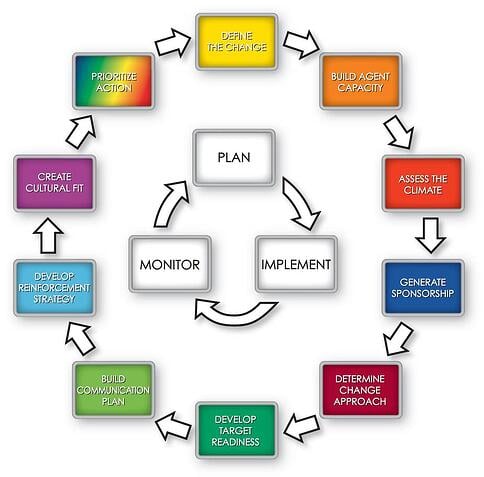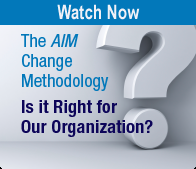40 years. That’s how long Don Harrison, President and founder of IMA has been working in the Change Management industry. While some may joke he started when he was 5, Don has dedicated his entire career to implementing complex changes in organizations. His frequent application of this expertise to technology implementations, cultural changes, mergers and acquisitions, and business process initiatives has led to his popularity as a consultant and keynote speaker for national and international conferences. Plus he is really funny, and that helps! Last week Don spoke at the ACMP Change Management 2016 conference in Dallas, TX. His pre-conference session Change Consultant Tips and Techniques: What You Can Learn from a 40-Year Veteran drew both internal and external Change Consultants. Here are just a few of the tips Don shared with attendees on how to succeed in the Change Consultant role.

Critical Components for Success
Being a Change Consultant, whether internal or external is a tough business. You have to have the right combination of intelligence, social grace and business know-how in order to be successful. Change consulting is:
- A Practice
- A Consultancy
- A Business
How do you know when your project has been successful? For a project to be successfully implemented, it should be measured in 5 ways:
- On Time
- On Budget
- All Technical Objectives Met
- All Business Objectives Met
- All Human Objectives Met
One of the biggest mistakes we see in our Change Management Consulting work is when organizations don’t apply the same business-discipline and rigor for managing the human elements of their change as they do the timeline, the budget, and the technical objectives for the project. What these organizations don’t realize is that if peoples’ behavior hasn’t changed, nothing has changed! In order to achieve ROI on any change project, an organization must re-frame its definition of success from installation (i.e. go-live), to implementation where business and human objectives have also been met.
Presenting to Senior Executives
One of the core competencies of a Change Consultant is being able to communicate effectively with Senior Leaders. That can be a lot harder than it sounds. In fact, we’d like to let you in on a little secret. Senior Executives don't care about "Change Management." We know. We know. Change Management is probably the one thing that can help organizational change projects be implemented more successfully. But in reality, Senior Executives don’t want to hear about it. What they do care about is getting projects done better and faster (and most likely cheaper, too.)
Don offers the following advice regarding how to talk about Change Management with Senior Leaders.
1. Discuss the project from their "Frame of Reference" - Try talking about how you can help get projects done faster, better, and at a higher level of quality rather than about Change Management and Sponsorship. As Don says, when you go to France, you should speak French. When you go to “Sponsorland” you should speak the language of Sponsors—data, finance, etc {Tweet This}.
2. Don’t use Buzz Words – One of the cautions we have for Change Agents who leave our Change Management Training programs is that they should not go back to their organizations using industry buzz words. As we talked about in #1, your Senior Leaders don’t want to hear it. Try getting through your next presentation without using the following words:
Change Involvement
Implementation Empowerment
Support Endorsement
Agent Engagement
Tangible Encouragement
Resistance Capacity
Readiness Climate
Culture Process
Humor Disruption
3. Forget the PowerPoints – they are a guide, but overuse won’t work. Instead, sit down and talk face to face with the Leaders in your organization. Be very clear on what actions you need right now.
Let Core Principles Guide Your Way
 When it comes Change Management Consulting, the very best way to achieve success is to employ a set of core principles that can guide your way. Remember, change isn't linear so these core principles need to provide the basis for a flexible, iterative approach to consulting that accurately reflects the reality of implementation.
When it comes Change Management Consulting, the very best way to achieve success is to employ a set of core principles that can guide your way. Remember, change isn't linear so these core principles need to provide the basis for a flexible, iterative approach to consulting that accurately reflects the reality of implementation.
The Accelerating Implementation Methodology (AIM) is derived from a set of core principles that provide directional guidance during a project’s lifecycle. The goal of Change Management Consulting isn't "to do" AIM, but rather to have these core principles tell you what you should be doing now. The practicality and repeatability of the AIM Change Management Methodology go a long way to reducing the risks of project failure or sub-optimization.
Whether you are already a Change Consultant or you are just considering crossing into this career path, there is a lot you can learn from a 40-year veteran of Change Management Consulting like Don Harrison. His tips and tactics have helped Change Consultants work with Senior Leadership over the years to increase speed, overcome barriers, and achieve benefit realization. Our hope is that they will help you, too.


